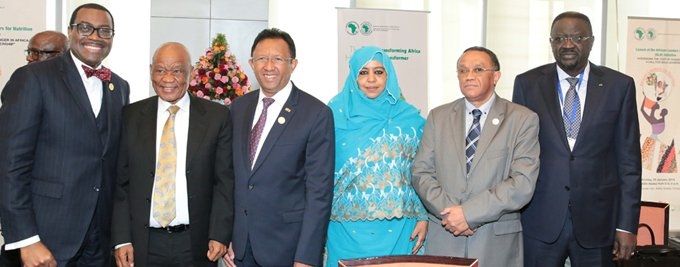African leaders back initiative to combat malnutrition

A new plan to remove barriers to combating malnutrition has been agreed to by African leaders. The resolution was made at a recent meeting in Addis Ababa with the African Union, which represents all 55 states on the continent.
The ‘African Leaders for Nutrition’ initiative has been in the works for the past three years, having been launched at a Global Panel Meeting in Accra, in 2015.
The plan’s stated aim is to ‘champion the implementation of diverse policies and interventions to address malnutrition in all its forms through agriculture, food systems, and other areas’.
The President of the African Development Bank, Akinwumi Adesina, commented:
“Poor nutrition is the main cause of death for millions of children under five. Indeed, 3 million children die every year in Africa from malnutrition. If current trends continue to 2030, Africa will have lost a mind boggling 36 million children because they didn’t have enough to eat or to eat well enough”
President Adesina went on to say that improving brainpower was a way to help Africa feed itself and as a driver for economic growth, highlighting that the contient was the only region where the number of stunted children has actually increased; from 47 million in 1990 to 59 million in 2016. He added:
“The African Leaders for Nutrition initiative will keep a report card…which will rate countries scientifically on their progress in addressing malnutrition and building grey matter infrastructure. This policy innovation will build incentives to complement and strengthen the commitment”.
The Chair of the African Union Commission, Moussa Faki Mahamat, said in a statement that nutrition remains high on the agenda and critical to all of the organisation’s ongoing development programmes. The President of Madagascar, Hery Rajaonarimampianina, also highlighted how malnutrition impacts both a child’s health and the economy:
“Stunted children fall ill more frequently – generating high health costs to families and the economy equivalent to between 1-30% of the total public budget allocated to health, or 3% of GDP. If we reduce current stunting rates by 50% by 2025, we can expect a saving of US $21.7 billion”
Aid & International Development Forum is hosting its inaugural Africa Climate Smart Agriculture Summit on 15-16th May 2018 in Nairobi, Kenya. The summit will discuss innovations and challenges in CSA practices, increasing cross industry collaboration for CSA, financial investment for CSA and much more.
Find out more about Africa Climate Smart Agriculture Summit, including the agenda and speakers.
Image Credit: African Development Bank













